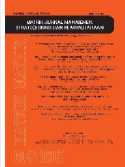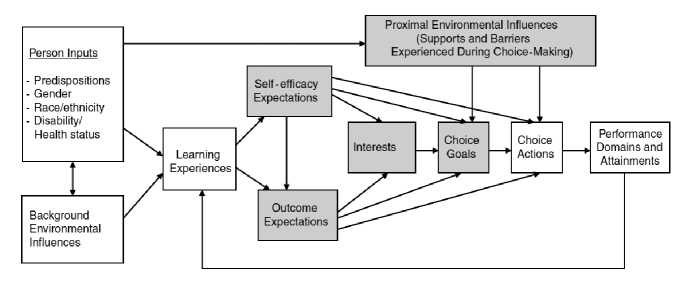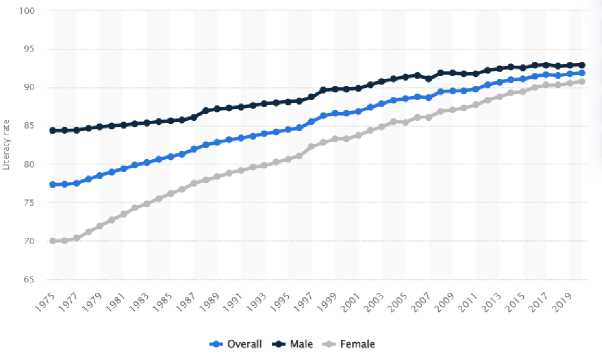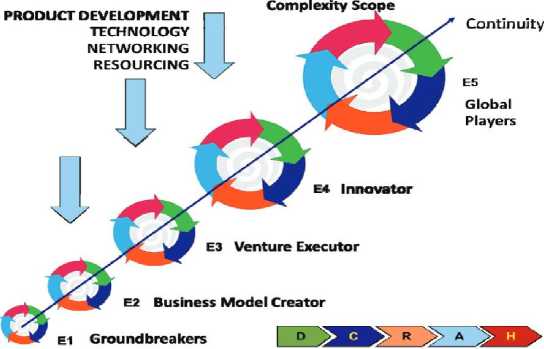Does Gender and Academic Year Affect The Performance of Entrepreneurship Education?
on
204 Matrik: Jurnal Manajemen, Strategi Bisnis dan Kewirausahaan Vol. 16, No. 2, Agustus 2022
MATRIK: JURNAL MANAJEMEN, STRATEGI BISNIS DAN KEWIRAUSAHAAN
Homepage: https://ojs.unud.ac.id/index.php/jmbk/index
Vol. 16 No. 2, Agustus (2022), 204-213
Does Gender and Academic Year Affect The Performance of Entrepreneurship Education?
Christina Christina 1)*, Timotius Febry Christian 2), Christina Whidya
Utami 3), Lili Kristanti 4)
1,2,3,4 Universitas Ciputra Surabaya
email: nana@ciputra.ac.id


SINTA 2
DOI : https://doi.org/10.24843/MATRIK:JMBK.2022.v16.i02.p02
ABSTRACT
Entrepreneurship education has received special attention from the Indonesian government in the last ten years. One of the government programs is to increase the number of entrepreneurs to support Indonesia’s vision of becoming a developed country in 2045. Research on gender issues and women entrepreneurship has attracted attention, thus increased tremendously. Yet, few scholars are still researching the relationship between gender and entrepreneurship academic performance, especially in Indonesia. This study compares entrepreneurship subject final score, using gender and academic year as the independent variables. The data used in this study is secondary data taken from the educational system. There are 3336 data used in this research. There are four academic year levels, and there are 834 data in each academic year, consisting of 374 males and 460 females. The comparative test is analyzed using a two-way ANOVA. This study shows a significant difference between the male and female final scores on entrepreneurship subjects from the second semester until the fifth semester. Females tend to have higher scores compared to males. This study also shows that there is a significant difference in the final score between each academic year. The development of the two-way ANOVA shows that there is no interaction between academic year and gender. Based on the finding, it is recommended to do further research to find the reason behind the excellent achievement by female.
Keyword: entrepreneurship education, gender, academic performance, academic year
Apakah Jenis Kelamin Dan Tahun Ajaran Mempengaruhi Kinerja Pendidikan Kewirausahaan?
ABSTRAK
Pendidikan kewirausahaan mendapat perhatian khusus dari pemerintah Indonesia dalam 10 tahun terakhir. Pemerintah berupaya untuk meningkatkan jumlah wirausahawan dalam rangka mendukung visi Indonesia menjadi negara maju pada tahun 2045. Penelitian tentang isu gender dan wirausaha perempuan telah menarik perhatian, sehingga meningkat pesat. Namun, masih sedikit yang meneliti tentang hubungan antara gender dan kinerja akademik kewirausahaan, khususnya di Indonesia. Penelitian ini bertujuan untuk membandingkan nilai akhir mata kuliah kewirausahaan dengan variabel bebas jenis kelamin dan tahun ajaran. Data yang digunakan dalam penelitian ini adalah data sekunder yang diambil dari sistem akademik. Ada 3336 data yang digunakan dalam penelitian ini. Ada empat tingkatan tahun ajaran dan setiap tahun ajaran terdapat 834 data, terdiri dari 374 laki-laki dan 460 perempuan. Uji komparatif dianalisis menggunakan ANOVA dua arah. Hasil penelitian ini menunjukkan bahwa terdapat perbedaan yang signifikan antara nilai akhir siswa laki-laki dan perempuan pada mata pelajaran kewirausahaan dari semester kedua hingga semester kelima. Dilihat dari sudut pandang gender, wanita cenderung memiliki skor yang lebih tinggi dibandingkan dengan pria. Hasil penelitian ini juga menunjukkan bahwa terdapat perbedaan nilai akhir yang signifikan antara setiap tahun ajaran. Hasil ANOVA dua arah menunjukkan bahwa tidak ada interaksi antara tahun akademik dengan jenis kelamin. Berdasarkan temuan tersebut, disarankan untuk melakukan penelitian lebih lanjut untuk menemukan alasan di balik prestasi yang baik oleh perempuan.
Kata kunci: pendidikan kewirausahaan, jenis kelamin, kinerja akademik, tahun ajaran
INTRODUCTION
Indonesia has the vision to become a developed country in 2045 (Indrawan, 2020). The role of youth is vital to support achieving this vision by creating job opportunities. It is the entrepreneurial spirit that made Japan more advanced than Indonesia. It is needed to drive young generations to become entrepreneurs to move Indonesia forward. (Indonesia Development Forum, 2019). To increase the number of new ventures and number of entrepreneurs, one of the government interventions at the macro level is through entrepreneurship education (Mirzanti et al., 2015).
The teaching and learning process and learning outcome are determined by assessing academic learning performance in educational institutions. Quality of academic performance is an essential factor in measuring personal progress. Therefore, academic performance has raised important questions for educational researchers for further research (Goni et al., 2015). Based on social cognitive theory, the development of entrepreneurship is significantly influenced by the personal characteristics and contextual factors of learners (Wei et al., 2019). Figure 1 shows the model developed by (Lent & Brown, 2006), it is a career development model that describes how individual input, contextual affordability, and sociocognitive variables affect the formation of interests, careers, goals, and behavior.

Figure 1. Model of Person, Contextual, and Experential Factors Affecting Career-Related Choice
(Source: lent & brown, 2006)
Research on gender and academic year issues related to academic performance is exciting to investigate further. Yet, few scholars are still researching the relationship between gender, academic year and entrepreneurship academic performance, especially in the context of entrepreneurship education in Indonesia. It is difficult to find studies that examine the relationship or compare the academic performance by academic year. Previous research done by Koyuncuoglu (2020) showed that in the process of learning, motivation is one of the most significant sources that control the direction, intensity, and determination of student behavior. Result of the study showed that the student’s motivation varied depending on their gender and year of study. Finding of Wei et al., 2019) research showed there is significant correlation between gender and entrepreneurship education. Goni et al. (2015) wrote that the Male literacy rate is higher than Females, but Females get a higher rank than males in almost all competitive examinations.
The data shown in Figure 2 supports the research conducted by Goni et al. (2015), it can be seen that male literacy rate is higher compare to female, The disparity in literacy rates is over seven percent. Research of Ghazvini & Khajehpour (2011) shows the existence of gender difference; females show the internal locus of control, using attitude, motivation, time management, anxiety, and self-testing strategies more extensively and get better marks in literature, while Male using concentration, information processing and selecting main idea
strategies more and get a better spot in mathematics. The result of the study also shows that there were no differences in external locus of control, academic self-concept, study aids, and test strategies. Findings regarding gender differences in academic performance tend to be inconsistent. Table 1 shows some research related to gender, academic performance, entrepreneurship, and the results of the research.

Figure 2. Global youth literacy rate (aged 15 to 24 years) from 1975 to 2019 by gender (Source: Statista)
This study aims to compare academic entrepreneurship performance by using the final score as the dependent variable and gender, academic year as the independent variables, and find any difference in entrepreneurship subject final score based on gender and academic year. Gender is used in this study since there wear previous research showed the existence of gender difference related to learning motivation and literacy rate that will affect the academic performance. Academic year is used in this study since year of study is related with the motivation and the acquirement of cognitive skills that related to academic performance. While there were several research showed that there was significant and positive correlation between motivation with academic performance (Muhammad et al., 2014; Yarin et al., 2022). It is expected that the result of this study can provide novelty about how student academic performance can be different based on gender and academic year in the context of entrepreneurship education of undergraduate students Indonesia.
In the educational system, the teaching and learning process and learning outcome are measured by academic achievement or performance. Academic performance is the ability to prove whether the learning outcome is achieved or not, and it is an essential factor to measure students' progress (Goni et al., 2015, Nabizadeh et al., 2019). Previous studies have shown that gender plays a vital role in academic performance, yet gender may vary depending on the field of study (Martí-Ballester, 2019). Ullah (2019) has compared the educational performance between males and females in developed and developing countries and Muslim countries. He concluded that females have better performance than males in education across the lands. Females are outperformed at school and college levels and in higher education. Study habits are important and closely related to the students' academic performance. Research conducted by Unwalla (2020) showed a significant difference in study habits between males and females; females tend to have better study habits than males. This finding is in line with Khaleel (2017), who stated that female students are more likely to get higher grades, tend to care more about studies, and also work harder compared to male.
Findings regarding gender differences in academic performance tend to be inconsistent. Some researchers find no significant difference between male and female students in academic
performance, such as Goni et al. (2015) and Faisal et al. (2017). Yet, some researchers found a significant difference between males and females in academic performance. Ghazvini & Khajehpour (2011) found that female students get higher scores in literature and male students get better mathematics marks. Balart & Oosterveen (2019) have the same research results; female students perform worse than males on math and science but perform better on verbal reading tests. Table 1 shows some research related to gender, academic performance, entrepreneurship, and the findings of the research.
Table 1. Research Related to Gender, Academic Performance and Entrepreneurship
|
Author |
Sample |
Findings |
|
Ghazvini & |
363 high school students in the first, |
Females get a better mark in literature, and |
|
Khajehpour, 2011 |
second and third academic years. |
Male gets a better spot in mathematics. Gender differences exist in the cognitive-motivational functioning of Male and Females in the academic environment, with the Females having a more adaptive approach to learning tasks. Gender differences were not found in external locus of control, academic self-concept, study aids, and test strategies. |
|
Goni et al., 2015 |
186 students in Kashim Ibrahim College of Education, Maiduguri and 136 students in Umar Ibn Ibrahim College of Education, Science and Technology, Bama |
There were no significant differences in academic performance between male and female in Colleges of Education in Borno |
|
Faisal et al., 2017 |
200 medical students at Rehman Medical College, Peshawar, Pakistan |
There was no significant difference between the academic performance of male and female students. |
|
Parajuli & Thapa, |
240 grade nine students in public and |
Female students were found outperforming |
|
2017 |
private schools in Lekhnath Municipality, Kaski, Nepal |
compare to male |
|
Sinell et al., 2018 |
40 scientists in STEM fields who are employed by universities or public research organizations of applied science and who either intended to incorporate an academic spin-off or had done so recently |
Females perceive the lack of resources (i.e., time, money, people) and knowledge more often and as more significant challenges than their male colleagues. Both women and men stressed the need for relevant support services and awareness-raising initiatives for transfer activities. |
|
Balart & |
PISA test data from third party |
Female students tend to perform worse than |
|
Oosterveen, 2019 |
institutions |
males on math and science but perform better on verbal reading tests. |
|
Justus, 2021 |
281 students of a German and Czech university |
Male students consistently get a higher mean than females in entrepreneurial knowledge, domain-specific interest in entrepreneurship, interest in leadership roles, entrepreneurial and intrapreneurial intention. |
Since male and female students have different study habits, this will result in other academic performances between male and female students. Therefore, this study hypothesized a difference between male and female students in entrepreneurship subject academic performance.
H1: There is a difference between males and females in entrepreneurship subject academic performance
Entrepreneurship Education in Universitas Ciputra Surabaya
Universitas Ciputra Surabaya was established in 2006 with the vision of creating worldclass entrepreneurs. Entrepreneurship subject is about 10% of the total credits in all study programs. Each subject is three credits. It is compulsory for all students for the five semesters in Universitas Ciputra Surabaya. This policy applied for students of 2006 until 2017 class. There was a curriculum change in 2018; entrepreneurship subject is compulsory for the management students from the first semester until the sixth semester. For students majoring in other than management, the entrepreneurship subject is only mandatory for the first semester and optional for the fourth until sixth-semester students. The students in the entrepreneurship class consist of 40-50 students from different majors. Project-based learning is used as the learning method. Students will form groups; each group will consist of 3-5 students.
Table 2. The Learning Outcome of The Entrepreneurship Subject
|
Semester |
Entrepreneurship Subject |
Learning Outcome | |
|
1st |
semester |
Entrepreneurship 1: The Ground Breaker |
Students can develop an entrepreneurial mindset by managing an entrepreneurial project that generates added value for a target community through an experiential-based learning approach. |
|
2nd semester |
Entrepreneurship 2: Business Model Creator |
Students can validate business models in groups by considering the four pillars of management and technological and legal aspects in starting a business. | |
|
3rd |
semester |
Entrepreneurship 3: Venture Executor |
Students can develop a business model based on business execution that focuses on customer validation and is implemented based on the four pillars of business management principles that adopt technology in running a business. |
|
4th |
semester |
Entrepreneurship 4: The Innovator |
Students can plan innovations invalidated strategic planning aimed at the growth and sustainability of a venture with global standards through a design thinking process. |
|
5th |
semester |
Entrepreneurship 5: The Global Player |
Students can implement strategic planning innovation in the form of corrective actions, development, and compliance with international standards in their ventures that impact market growth and sustainability, as well as increase the valuation of their ventures. |
Teams can choose a specific study guild in the fourth and fifth semesters by their business project. There are ten specific study guilds provided, which are 1) Tourism Hospitality and Culinary (THC), 2) Trading, 3) Family Business, 4) Social Entrepreneurship, 5) Marketing and Visual Communication (MVC), 6) Fashion, 7) Interior Architecture, Construction, and Engineering (Inace), 8) Personal and Professional Development and Service (PPDS), 9) Technology and 10) Corporate Entrepreneurship. The learning outcome for each entrepreneurship subject are listed in Table 2.
From Table 1, it can be seen that each semester has a different topic and learning outcome. Figure 3 helps us get a better understanding of the curriculum design.
The curriculum for each semester is designed based on national content standards for entrepreneurship education. The stages of the entrepreneurial process are discovery, concept development, resourcing, actualization, and harvesting. Looking at the entrepreneurship curriculum design, it can be seen that each academic year has its learning outcome and challenges. In higher semesters, the challenges for students will become more complex, and the business scale will increase. The entrepreneurship program was designed as a sequential
course, and it is expected that in the fifth semester, the students are already equipped with the right entrepreneurial mindset, knowledge, and experience in creating a validated business model, executing and innovating their business, and also the knowledge and experience about global standard. Therefore, this study hypothesized that there is a difference in entrepreneurship subject academic performance between each academic year.
H2: There is a difference of entrepreneurship subject academic performance between each academic year.

Figure 3. Universitas Ciputra Entrepreneurship Curriculum (Source: Antonio, 2012)
METHOD
This research is quantitative research. The data used in this study is secondary data taken from the academic system. There are 3336 data used in this study. There are four levels of the academic year and each school year there are 834 data, consisting of 374 Males and 460 Females.

Figure 4. Data scenario
The population taken in this study were business school students who took entrepreneurship courses. Data was dug from the 2017 class sequentially from semester 2 to semester 5, 2017/2018 even students took two studies, in 2018/2019 odd took three courses, in 2018/2019 even took four courses and 2019/2020 odd took five classes as shown in figure 4. Data analysis used one of the univariate methods, namely two-way ANOVA. The dependent variable is the final value of the entrepreneurship course, and the independent variables used are gender and academic year.
RESULTS AND DISCUSSION
This study investigates the entrepreneurship subject final score for four academic years, which are from 2017/2018 even when the students were having entrepreneurship 2 subject until
2019/2020 odd when the students were having entrepreneurship 5 subject. The entrepreneurship subject final score for each academic year is presented in Table 3.
Table 3. Descriptive Result of Entrepreneurship Subject Final Score in Each Academic Year
|
Academic Year |
Final Score |
|
2019/2020 odd |
80.316 |
|
2018/2019 even |
79.917 |
|
2018/2019 odd |
79.192 |
|
2017/2018 even |
78.610 |
From Table 3, it can be seen that the entrepreneurship subject final score increased every academic year. The experience of learning and doing the entrepreneurship project sequentially is proven ability to increase the entrepreneurship subject final score in each academic year. There are 374 (44.8%) male students and 460 (55.2%) female students in each academic year data. The descriptive result of the entrepreneurship subject final score for male and female students is presented in Table 4.
Table 4. Descriptive Result of Entrepreneurship Subject Final Score based on gender
Gender Final Score
Male 78.480
Female 80.538
From Table 4, it can be seen that the female entrepreneurship subject's final score is higher compare to males. The result obtained in this study is by Ullah (2019), that stated that females are better performed and get the better score to compare to male in higher education.
Table 5. Descriptive Result of Entrepreneurship Subject Final Score in Each Academic Year and Gender
|
Gender |
Gender |
Mean |
Std. Deviation |
Frequency |
|
2019/2020 odd |
Male |
78.89 |
9.715 |
374 |
|
Female |
81.74 |
6.489 |
460 | |
|
2018/2019 even |
Male |
79.10 |
7.274 |
374 |
|
Female |
80.74 |
6.391 |
460 | |
|
2018/2019 odd |
Male |
78.33 |
7.985 |
374 |
|
Female |
80.05 |
6.845 |
460 | |
|
2017/2018 even |
Male |
77.60 |
7.100 |
374 |
|
Female |
79.63 |
5.998 |
460 |
Table 5. shows the differences in entrepreneurship subject final score between males and females for each academic year. It can be seen that the score of both males and females increase in each academic year and the female’s final scores consistently higher compare to males. Females have better performance compared to males in education. The higher grades of female students are because female students have better study habits and also work harder than male students (Khaleel, 2017, Unwalla, 2020).
Table 6. shows the two-way ANOVA result. The sig. value of gender is 0.000 (<0.05) means that the first hypothesis is confirmed, and there is a significant difference between males and females in entrepreneurship subject academic performance. The results of the research were conducted by the results of Parajuli & Thapa (2017), Khaleel (2017), and Ullah (2019), where female students were found outperforming compared to males. Based on previous research, male and female students have different study habits, which will result in various academic performances between male and female students. The higher grades of female
students are because female students have better study habits and also work harder than male students (Khaleel, 2017, Unwalla, 2020). Related to academic motivation, the results of research conducted by Koyuncuoglu, 2020) found that female students have a higher academic motivation compare to male students and there were several research showed that there was significant and positive correlation between motivation with academic performance (Muhammad et al., 2014; Yarin et al., 2022). This explains why there is a difference in academic performance between male and female.
Table 6. Two Way Anova Result
|
Source |
Type III Sum of Squares |
df |
Mean Square |
F |
Sig. |
|
Corrected Model |
5178.329a |
7 |
739.761 |
14.180 |
.000 |
|
Intercept |
20864909.715 |
1 |
20864909.71 |
399957.473 |
.000 |
|
5 | |||||
|
Academic Year |
1424.586 |
3 |
474.862 |
9.103 |
.000 |
|
Gender |
3494.311 |
1 |
3494.311 |
66.982 |
.000 |
|
Academic Year * |
190.380 |
3 |
63.460 |
1.216 |
.302 |
|
Gender | |||||
|
Error |
173614.507 |
3328 |
52.168 | ||
|
Total |
21324270.923 |
3336 | |||
|
Corrected Total |
178792.837 |
3335 |
R Squared = .029 (Adjusted R Squared = .027)
The sig. value of the academic year is 0.000 (<0.05), which means that the second hypothesis is confirmed, and there is a significant difference in entrepreneurship subject academic performance between each academic year. The entrepreneurship program was designed as a sequential course, and the stages are designed based on the national content standards for entrepreneurship education. It is intended that the higher the semester, the more challenges for students will become more complex, and the business scale will increase that will increase the student’s entrepreneurship knowledge and also experience. The final entrepreneurship score in each academic year shown in Table 3 shows that the higher the semester, the higher the students' final score. This result is in line with what is expected when designing the entrepreneurship curriculum. The higher the semester, students are more equipped with entrepreneurial mindset, knowledge, and experience in creating and executing their business which is shown by the result of the final score. Furthermore, previous study by Koyuncuoglu (2020) found that students there was significant difference based on the year of study. Students with higher year of study have higher academic motivation. This is due to the fact that students with a higher academic year will gradually develop cognitive skills throughout their stay in college and become sufficiently motivated to engage in self-regulated learning.
The sig. value of academic year * gender is 0.302 (>0.05), which means no interaction between academic year and gender. This illustrates that there is no relationship between changes in the year of learning-on-learning performance for each gender in entrepreneurship subjects.
CONCLUSION
This study compares the final grades of entrepreneurship subjects with the independent variables of gender and academic year. The results showed that there were significant differences in the final grades of entrepreneurship subjects, female students tended to have higher grades than male students. This result according to Ullah (2019), Women have a better performance than men in education. The high score of female students is because female students have better study habits and also work harder than male students (Khaleel, 2017,
Unwalla, 2020) Theoretically, the study of academic performance, gender, and academic year is very important in supporting the development of entrepreneurship education curriculum. The results of this study will have implications for entrepreneurship education, particularly the curriculum and pedagogy of entrepreneurship. Based on social cognitive career theory (SCCT) developed by Lent & Brown (2006), personal input such as gender will affect learning experience that will affect on performance. This study also validates that there was significant difference in term of academic year, students who has higher academic year will have higher academic performance.
This study has managerial implication as it provides insight for the university, lecturers, parents, and students. This study implies that gender and academic year have a role in shaping (or limiting) academic performance. Universities need to reevaluate and redesign the curriculum and learning method that can eliminate the gap between male and female students and accommodate their needs. Lecturers can design different methods and approaches for different genders. Lecturers need to provide various activities and methods to attract the attention of both men and women and improve their learning outcomes which are indicated by final grades. It is expected that students with higher level of academic year will have higher academic performance. Students with higher academic year are expected to have higher cognitive and psychomotor competencies, so it is important for the university to measure and monitor this to ensure this is achieved.
There are some limitations of this study. First, this study only compares academic performance based on gender and academic year. Future research could explore more about the difference in learning motivation and self efficacy between male and female students, and what factors that cause gender disparities in academic performance. Second limitation is the use of the respondents from one university, as such the findings may not be applicable to other universities. Future research could use other universities in Indonesia or in the world, allowing for more generalizability. Third, this study only performs a comparative test on academic performance, future research could explore more about the model and relationship between entrepreneurship education, academic performance, entrepreneurial intentions and behavior considering that research on the impact of academic performance on entrepreneurial intention and behavior is still inconsistent. Designing a good entrepreneurship curriculum is expected to influence academic performance, as well as increase students' entrepreneurial intentions and behavior so as to create more businesses and new entrepreneurs to support Indonesia to become a developed country in 2045.
REFERENCES
Antonio, T. (2012). Inspiring Wednesday, Ciputra University Best Practice in Shaping Entrepreneurs in Higher Education. https://doi.org/https://doi.org/10.37715/jee.v1i1.9
Balart, P., & Oosterveen, M. (2019). Females show more sustained performance during testtaking than males. Nature Communications, 10(1). https://doi.org/10.1038/s41467-019-11691-y
Faisal, R., Shinwari, L., & Hussain, S. S. (2017). Academic Performance of Male in Comparison with Female Undergraduate Medical Students in Pharmacology Examinations. http://www.texastop10.princeton.edu/reports/wp/ANNALS_Co
Ghazvini, S. D., & Khajehpour, M. (2011). Gender differences in factors affecting academic performance of high school students. Procedia - Social and Behavioral Sciences, 15, 1040–1045. https://doi.org/10.1016/j.sbspro.2011.03.236
Goni, U., wali B, Y. S., Kaltum Ali, H., & Waziri Bularafa, M. (2015). Journal of Education and Practice www.iiste.org ISSN (Vol. 6, Issue 32). Online. www.iiste.org
Justus, X. (2021). Academic Entrepreneurship Education: Does Gender Matter? SHS Web of Conferences, 90, 02005. https://doi.org/10.1051/shsconf/20219002005
Khaleel, M. (2017). Female students are more likely to get higher grades than male students.
International Journal of Scientific and Research Publications, 7(3), 378. www.ijsrp.org
Koyuncuoglu, O. (2020). An Investigation of Academic Motivation and Career Decidedness among University Students. International Journal of Research in Education and Science, 7(1), 125. https://doi.org/10.46328/ijres.1694
Lent, R. W., & Brown, S. D. (2006). On conceptualizing and assessing social cognitive constructs in career research: A measurement guide. Journal of Career Assessment, 14(1), 12–35. https://doi.org/10.1177/1069072705281364
Martí-Ballester, C. P. (2019). Factors that influence academic performance: analyzing gender differences in accounting students. Revista Educación, 43(2), 29.
https://doi.org/10.15517/revedu.v43i2.28916
Mirzanti, I. R., Simatupang, T. M., & Larso, D. (2015). Mapping on Entrepreneurship Policy in Indonesia. Procedia - Social and Behavioral Sciences, 169, 346–353.
https://doi.org/10.1016/j.sbspro.2015.01.319
Muhammad, S., Norsuhaily, |, Bakar, A., Sadiq, |, Mijinyawa, I., Kabara, |, & Halabi, A. (2014). Impact of Motivation on Student’s Academic Performance A Case Study of University Sultan Zainal Abidin Students. The American Journal of Innovative Research and Applied Sciences. www.american-jiras.com
Parajuli, M., & Thapa, A. (2017). Gender Differences in the Academic Performance of Students. Journal of Development and Social Engineering, 3(1), 39–47.
Sinell, A., Müller-Wieland, R., & Muschner, A. (2018). Gender-Specific Constraints on Academic Entrepreneurship and Engagement in Knowledge and Technology Transfer. In Technology Innovation Management Review (Vol. 8, Issue 2).
Ullah, R. (2019). Male versus Females’ educational performance: Empirical evidences from global north and global south. African Educational Research Journal, 7(4), 163–167. https://doi.org/10.30918/AERJ.74.19.036
Unwalla, N. (2020). Comparative Analysis of Study Habits Between Males and Females. In International Journal of Innovative Science and Research Technology (Vol. 5, Issue 7). www.ijisrt.com182
Wei, X., Liu, X., & Sha, J. (2019). How does the entrepreneurship education influence the students’ innovation? Testing on the multiple mediation model. Frontiers in Psychology, 10(JULY). https://doi.org/10.3389/fpsyg.2019.01557

Discussion and feedback